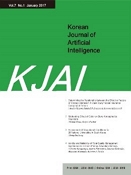- 권한신청
- E-ISSN2508-7894
- KCI
A Study on Predicting the demand for Public Shared Bikes using linear Regression
JUNG, Sang Woo (All for Land)
Abstract
As the need for eco-friendly transportation increases due to the deepening climate crisis, many local governments in Korea are introducing shared bicycles. Due to anxiety about public transportation after COVID-19, bicycles have firmly established themselves as the axis of daily transportation. The use of shared bicycles is spread, and the demand for bicycles is increasing by rental offices, but there are operational and management difficulties because the demand is managed under a limited budget. And unfortunately, user behavior results in a spatial imbalance of the bike inventory over time. So, in order to easily operate the maintenance of shared bicycles in Seoul, bicycles should be prepared in large quantities at a time of high demand and withdrawn at a low time. Therefore, in this study, by using machine learning, the linear regression algorithm and MS Azure ML are used to predict and analyze when demand is high. As a result of the analysis, the demand for bicycles in 2018 is on the rise compared to 2017, and the demand is lower in winter than in spring, summer, and fall. It can be judged that this linear regression-based prediction can reduce maintenance and management costs in a shared society and increase user convenience. In a further study, we will focus on shared bike routes by using GPS tracking systems. Through the data found, the route used by most people will be analyzed to derive the optimal route when installing a bicycle-only road.
- keywords
- Shared bikes, demand forecasts, linear regression, machine learning, AI
- 다운로드 수
- 조회수
- 0KCI 피인용수
- 0WOS 피인용수














